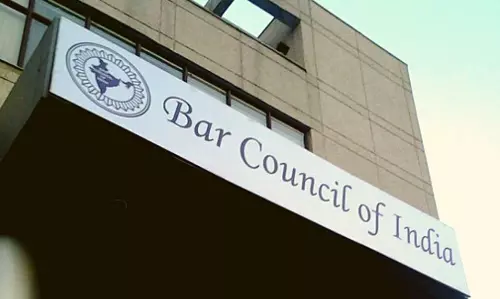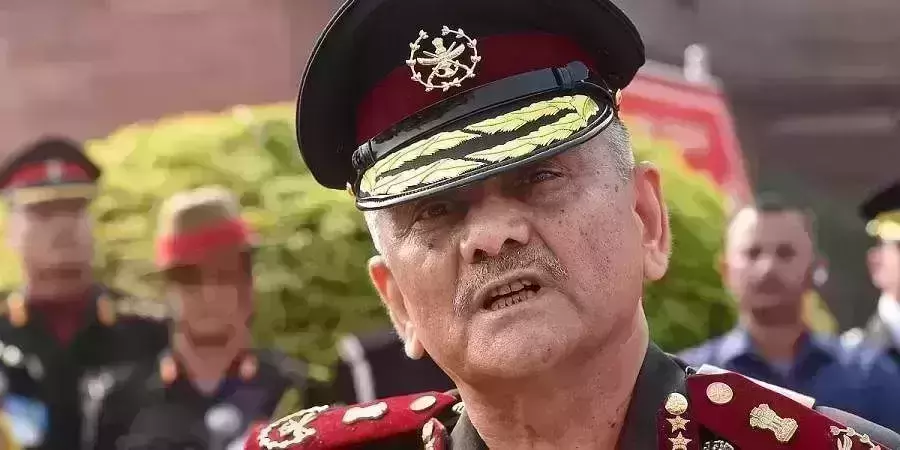
Witness protection scheme: a good beginning
text_fieldsThe Supreme Court order to states to implement Witness Protection Scheme amounts to a proclamation that governments have an obligation to give protection to witnesses in criminal cases. The large scale victimization of witnesses in the Asaram Bappu case had put the very judicial system under a shadow of doubt.
It was on the petition asking for protection to witnesses that the apex court asked to form witness the protection scheme. As per the court order, the draft scheme prepared by the Central Government has been approved with changes, and is to be implemented immediately on condition of it being passed by Parliament. The bench headed by Justice AK Sikri pointed out that witnesses deserved protection from threats and inducements. In proportion to the threats that exist, witnesses will be classified into three, and the scale of protection will be proportionate to that. The scheme envisages several areas covering in-camera trial, physical securitry, keeping the confidentiality of witness statement and details of the witness, maintaining and changing confidentiality of the name and identity of the witness. The phone calls and messages received by the witness will be monitored if necesssary and his residence will be fitted with surveillance cameras. Expenses for all this will have to be met by the state government.
Over the last few years, a phenomenon that has been making a mockery of criminal cases in India is the culture of defeating justice by liquidating witnesses or threatening and coercing them. Things were moving in a direction in which those with money, power and influence would not be punished whatever they do. The number of people getting convicted in criminal cases is on the descent. The cases getting proved stands at a no enviable 26 per cent. A major reason for cases being defeated is the defection and disappearance of witnesses. As Jeremy Bentham pointed out, witnesses being the very eyes and ears of the courts, their protection is a responsibility of the state, and a pre-condition for justice. Several witnesses who deposed against Asaram Bappu were killed; many were subjected to attacks; one was missing and investigation officials and witnesses were subjected to threats. In such an atmosphere, a situation arose in which prosecution witnesses defected en masse. Right from Best Bakery vase to Sohrabuddin Sheikh fake encounter case, the country has witnessed extremely dramatic and ridiculous defections. In Sohrabuddin and Tulsi Prajapati cases, about 80 witnesses defected.
In cases of child torture and rape, the witnesses are mostly victims too; and the cases place them right in front of the culprits. In cases where the government is party to fake encounters, witnesses are subjected to coercion using even the police. It is a legitimate concern whether the witness protection scheme has the robustness to be a solution for such a sad state of affairs. Regardless of that, the essentiality of this has even earlier been pointed out by courts and Law Commission. In the proposals submitted by Justice VS Malimath Committee, after studying cases including Jessica Lal case, it was suggested that witnesses should not only be guaranteed physical and mental security, but be accorded the status of guests of honour. They should be compensated for their effort and expenses to appear in the court and should be treated with decent behaviour in and outside the court. Justice Malimath Committee had envisaged a wide and comprehensive mechanism.
Even if it does not go that far, the witness protection scheme under process of implementation now will form a major step in the judicial history of India. The state government of Delhi had already implemented it. How and to what extent the provisions of the scheme will be realized is yet to be known. But not failing in its implementation is necessary for the sustenance of our justice system. The position of the Law Commission that the financial burden of this has to be jointly borne by the Centre and the states appears to be more pragmatic; in its current form approved by the court it is on the shoulders of the states. It is also doubtful to what extent the current system will be successful in protecting the confidentialy and anonymity of witnesses. As of now, it is not clear who the 'appropriate authority' will be to assess the seriousness of the threat the witness may face; Justice Malimath Committee had suggested that there should be broader and more powerful 'national security commission' and state-level commissions. And that suggestion is worth considering. At any rate, ultimately it is not only the new legal mechanisms that will make solutions for all this. Equally important is a socio-political atmosphere that shows respect to the rule of law. And appropriate reforms in the arms of justice including police is also essential. The will to achieve all this is called for not only from the Supreme Court and legal quarters. When crimes are minimised, the biggest beneficiary will be the people as a whole. Hence any attempt for witness protection will definitely be a good beginning.























